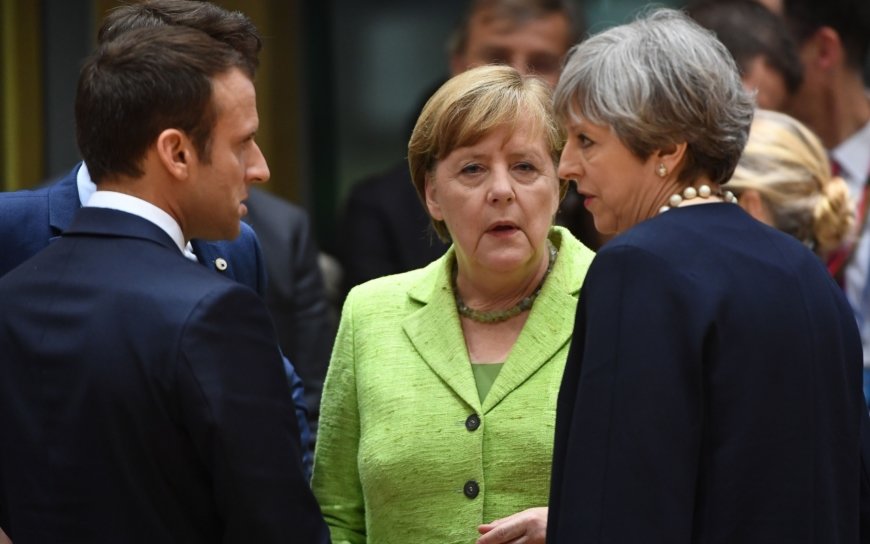A contemplation on Europe's new crises

This is while issues such as reducing the income tax for middle and low-incomes,
increasing pension rights and securing the interests of trade unions and workers
supported by these unions remain unanswered. On the other hand, the recent
protests in both the Netherlands and Belgium showed that there is a huge
potential for the "rebellion against the United Europe" inside the Green
Continent.
The cohesion of the economic and social structure of European countries has
doubled their influence on each other, meaning that they can easily affect, and
be affected by each other. Indeed, what is happening in Europe? Is "the collapse
of the United Europe" still an "abstract idea"? Or has it become an "objective
reality" under the influence of past years' events in Europe? In this regard,
there are some points that should be taken into consideration:
1- Jacques Derrida, the postmodern philosopher, spoke of "deconstruction" during
his lifetime. This concept was, in fact, the most famous term used by this
French philosopher in justifying and interpreting many of the philosophic
phenomena. Deconstruction is a concept that Jacques Derrida has used for
"rebuilding", that is to say, destroy and, at the same time, construct. In other
words, those who are of an idea or a specific style, sometimes have to reinvent
their ideas through destroying its foundations (Which are the bases for that
idea) and create new foundations, so deconstruction is made by decision-makers
and those who possess a theory.
2- The European Union is now under critical pressure! The constant political,
social and security crises have raised the vulnerability of this block. On the
other hand, European leaders have clearly lost control over issues such as
"Brexit" and "European economic crisis". It shouldn't be forgotten that ten
years of austerity policies and a reduction in the general budgets of the
Eurozone member states had bad results for the European citizens, and the signs
of the economic crisis can be still seen throughout Europe.
Beyond what has been mentioned, the European Union is faced with a serious
problem called the growth of nationalism and Right extremism. These
anti-immigration movements, which, after the failure of European governments to
resolve the economic crisis as well as the imminent crisis of immigration in
2015, have gained a lot of supporters, are planning to conquer the European
Parliament and government, and then put an end to the "United Europe" and its
symbols such as "the Euro currency" and "Schengen Agreement". While, about eight
years ago, few people could think of Europeans extremist to gain power in this
continent, they now see their highlighted presence in countries like Austria,
Germany, the Netherlands, Sweden, and France. However, European leaders seem to
have lost the power of "analyzing the status quo" and, consequently, the ability
to change it for the better.
3- In the coming months, European Parliamentary Elections will be held in all
the member states. It's expected that the Nationalists will strengthen their
position in the European Parliament. In the 2014 parliamentary elections, more
than 100 nationalist and far-right extremists managed to find a way to the
European Parliament. This time, nationalists may win even more seats in the
European Parliament. In this case, the social and political power of the
nationalist and anti-immigration movements in Europe will be increased.
Consequently, the existence of the United Europe's foundation will be directly
targeted. This is a threat that has already shadowed Brussels (the headquarters
of the European Union).
4- The evidence suggest that the EU, according to Jacques Derrida's theory,
needs some kind of "deconstruction". In other words, to maintain this block,
European authorities need to destroy the foundations that were established in
the past and to replace it with a new, efficient structure. But the main
question is, are the European countries able to do this? Britain is leaving
European Union, and Germany's top chancellor, Angela Merkel, is to leave power
by 2021 because of lack of popularity among German citizens. French President
Emmanuel Macron's procedure was quite weak during France recent protests,
suggesting that his proposed reforms, would not be accepted even in his own
country. Under such circumstances, which the European troika has lost the power
of deconstructing and rebuilding Europe, we can't see a good future for EU
member states.
Finally, we come to conclude that we should be waiting for more crises raising
in Europe. Although the exact characteristics of these new crises are hard to
predict, we can be sure that the new round will be more severe compared to the
previous times; an issue that politicians such as Angela Merkel and Emmanuel
Macron aren't willing to accept.
Source:TehranTimes
















